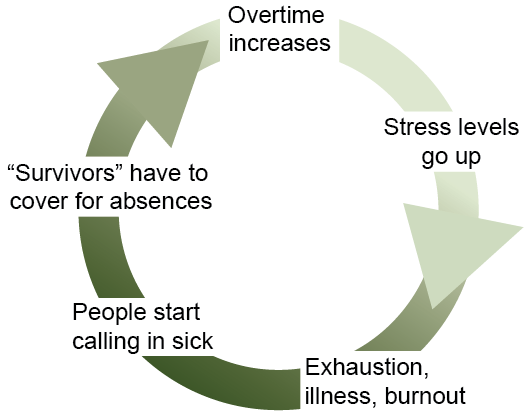Two Types of Overtime

Research shows that overtime is often associated with increased stress. Long hours can mean fatigue, physical discomfort, lack of time for family and personal responsibilities, and burnout.4
“Good” Overtime
Still, many telecommunicators appreciate the opportunity to work extra shifts. Increasing hours at work may decrease financial stress, and this is a balance every telecommunicator needs to find individually. So overtime is not necessarily a bad thing—if it's voluntary.
“Bad” Overtime
On the other hand, mandatory overtime is what researchers call a “toxic stressor.” It has all the negatives of any overtime work. But in addition, it also decreases employees' control over their jobs and makes it hard to predict and plan for their lives outside of work.
Eliminating overtime may not be realistic for your call center, but you can make an effort to limit the most toxic effects of overtime. On the next page, you'll find strategies call centers use to reduce “mando” and give employees the control and predictability they need.

